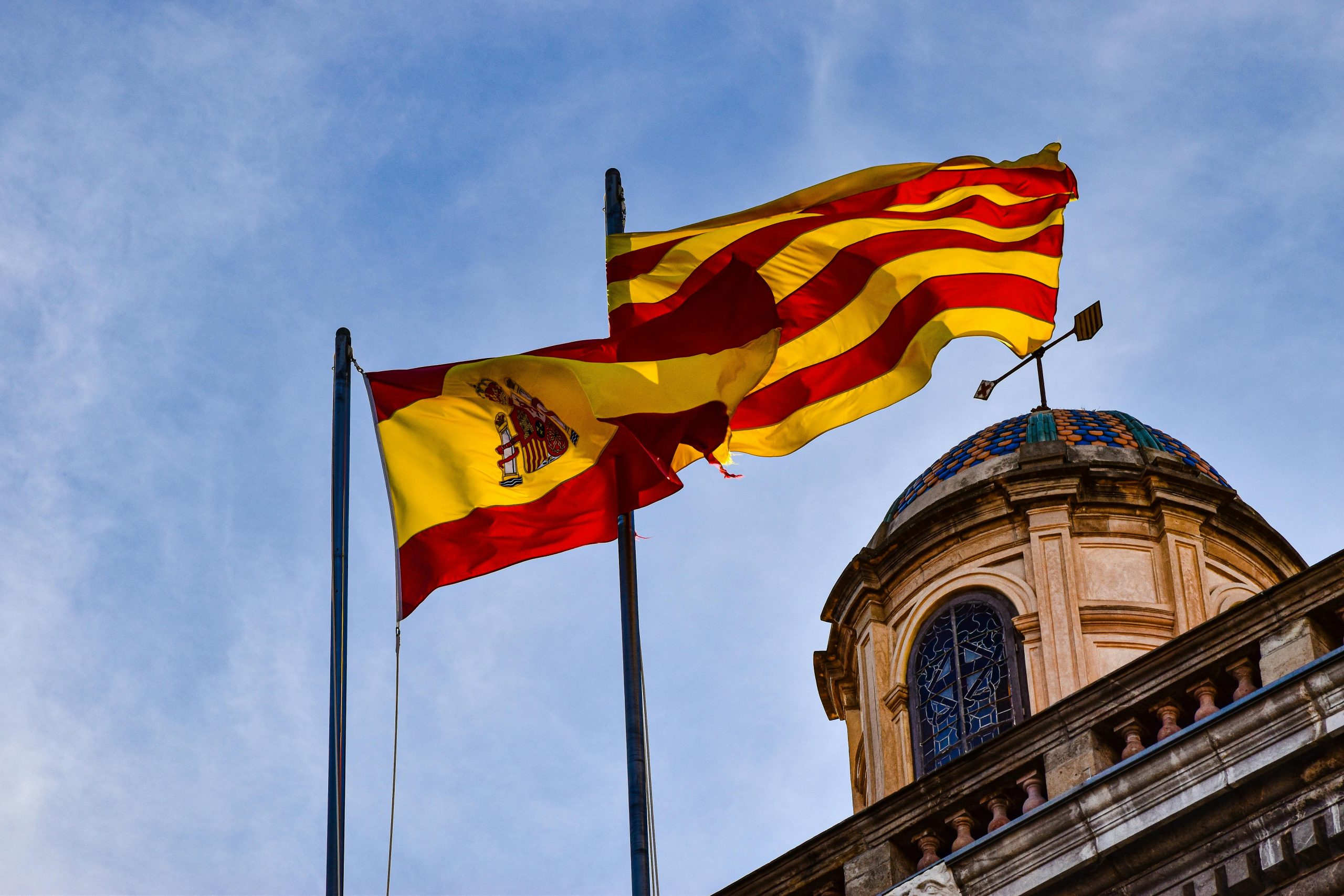Taxes in Switzerland for expats: What should you pay?
There are taxes in Switzerland for expats that you should be aware of if you plan to settle in this country. Let's find out what they’re!
The country best known for its exquisite chocolate, relentless clocks and enigmatic Swiss Alps also has taxes that every foreigner must pay if you live in Switzerland. If you live in the country for study, work, investment or if you plan to set up a business there, you may also benefit from certain tax advantages that the government has introduced to attract new talent.
Switzerland is one of the most economically stable countries with the highest salaries in Europe. Living and working here can be a great opportunity, as you can enjoy a high quality of life and be part of one of the most competitive and dynamic labour markets. In addition, being in the centre of the European continent, it facilitates transport to other destinations nearby. Discover all the tax obligations in this country!
Types of foreigners in Switzerland
All foreigners have to pay taxes in Switzerland, but these aren’t the same for everyone. It depends very much on the type of individual you are: Student, worker, retired person, etc. It’s also influenced by the activity your company carries out, the properties you acquire or the investments you want to make in this country. Let’s take a closer look at what each group consists of:
People
Foreigners who travel to the country with the intention of taking up temporary or permanent residence do so for a variety of reasons. These reasons are what classify them into different types of people. It’s important to be clear about where you’re classified in order to be aware of the taxes you have to pay as a foreigner in Switzerland and also what benefits you are entitled to. The main groups of foreign natural persons are:
- Foreign workers: These are citizens of the European Union, who’re allowed to work and live in this country. This is due to existing bilateral free movement agreements. They’re also persons resident in third countries outside the EU. In this case, the residence and/or work permit is subject to specific conditions. This group also includes digital nomads who, thanks to the Swiss nomad visa, have a permit to telework in Switzerland.
- International students: Most of them are young people who’ve been accepted by a Swiss educational institution to continue or start their studies here. In addition, the government allows them to work a maximum number of hours per month.
- Foreign pensioners: Seniors retiring from the labour market choose Switzerland for its high quality of life, excellent medical care and scenery. In order to do so, they must have health insurance and financial stability of their pension.
- Family members of Swiss residents: Children or partners of Swiss residents can obtain residence by applying for family reunification.
- Refugees and asylum seekers: In situations of war or political persecution, Switzerland welcomes refugees by offering them a special status in order to be able to reside in the country.
Companies or properties
Many companies choose Switzerland to open their business there because of its financial system, its strategic position in the centre of Europe and its modern, fully equipped infrastructure. Like individuals, each group of companies has its own taxes to be paid as foreigners in Switzerland and its own tax benefits.
- Established foreign companies: Multinationals, wishing to expand their branches in Switzerland, take advantage of existing treaties to obtain subsidies and benefits. They choose this destination because of the country’s high purchasing power and qualified professional environment.
- Foreign start-ups: Switzerland is a country ready for innovative, technological, bio-tech and fin-tech projects. This is why entrepreneurs from other countries choose this destination to launch their ideas, as they can count on the support of programmes such as Switzerland Innovation.
- Real estate investments: As a foreigner, you can purchase residential or commercial property in Switzerland. In some areas, such as Zurich, Geneva or Lausanne, it’s common to buy second homes or invest in luxury housing.
- Agricultural or agro-industrial projects: Some foreigners choose to invest in agricultural properties, sustainable projects or in local food and wine production. Valais and Vaud are popular for their vineyards and for this type of investment.

Taxes for foreign individuals in Switzerland
Each group of natural persons, which we’ve seen in the previous section, must pay taxes in Switzerland as foreigners. The rate varies depending on the canton where you live, your income, marital status and wealth, among others. The main Swiss taxes are:
- Income tax: Is divided, on the one hand, into the federal tax, which applies to all residents at a progressive rate of up to 11.5 %, and the cantonal tax. Each canton has a rate ranging from 5% in areas such as Zug and Schwyz to 25% in Geneva or Zurich.
- Wealth tax: For each property, bank accounts, assets or other property, you will have to pay a tax of between 0.1% and 1%, depending on the canton.
- Property taxes: If you own property in Switzerland, you’ll have to pay an annual fee based on the rateable value, i.e. the property tax. Also, if you sell a property and make a profit, you’ll have to pay capital gains tax.
- Indirect taxes: At the federal level, VAT is levied at a rate of 7.7%. There are also other taxes on the import of vehicles, tobacco and alcohol.
- Withholding tax on foreign income: Depending on the tax treaties between Switzerland and your home country, you may have to pay tax on income earned abroad.
Tax or fiscal benefits for foreigners in Switzerland
After taking a closer look at each type of tax you have to pay in Switzerland as a foreigner, there are also benefits you may be eligible for, depending on your particular situation. In this way, you can reduce some fees or even be exempted. They’re generally aimed at qualified professionals and foreigners with high purchasing power. These are the tax advantages of the Swiss government:
- Forfait tax regime: For pensioners or individuals residing in Switzerland who don’t need to work, there is an option to calculate taxes based on your cost of living to have a lower tax burden.
- Double taxation treaties: You may be able to reduce or be exempt from taxation on your income in your home country. This is due to the more than 100 agreements Switzerland has signed with other governments to avoid double taxation.
- Incentives for qualified professionals: Some cantons have designed tax deductions or reduced rates to attract talent in certain sectors such as technology, banking and biotechnology.
- Tax deductions: You can have deductions for children’s education, transport or the cost of buying a home.
- Pension tax treatment: This is a special arrangement to provide foreign pensioners with favourable conditions for taxation of their pension.
Important: If you’re a frequent traveller and want to stay connected without worrying about costly roaming or looking for a new SIM at every destination, Holafly’s subscription plans from Holafly subscription plans are for you. With a single eSIM, enjoy internet in more than 170 countries for one fixed price and no bill surprises. Travel without limits and connect easily and safely! 🚀🌍

Taxation of foreign properties or businesses in Switzerland
Owning a company or property in Switzerland is a great opportunity to expand your business in the European market. However, any gains must be declared in the Swiss tax system and the required taxes must be paid. These rates can always vary depending on the canton where you decide to locate your business. These are the taxes for foreign companies:
- Corporate income tax: Every foreign company operating in Switzerland is taxed according to the income generated in Switzerland. Depending on the canton, rates can range from 11% to 24%. For example, in Zurich, the rate is 19.7%, while in Zug it’s lower, at around 11.9%.
- Capital tax: This is a tax at cantonal level ranging from 0.001% to 0.5%, depending on the net worth of the company.
- Property tax: Foreign owners of property in Switzerland have to pay local taxes which vary according to the value of the property and the canton. This also applies to rental income.
- Capital gains tax: Depends on the profit made and the length of time in possession of the property, each canton imposes a specific rate.
- VAT (Value Added Tax): Any foreign company selling a good or service has to register for VAT if it has an annual income of more than Fr 100,000 (about $110,000). The standard VAT rate is 7.7%, with reduced rates of 2.5% for food and medicines.
Tax or fiscal benefits for foreign businesses in Switzerland
Switzerland supports the promotion of start-ups and qualified foreign talent. It has therefore designed a series of tax benefits for foreign companies to alleviate their tax burden, especially at the start of a project. Find out if your company is eligible for any of them:
- Tax relief for cantonal negotiations: Some Swiss cantons are interested in foreign companies setting up in their region. For this reason, they offer significant reductions and temporary exemptions.
- Incentives for research and development (R&D): If you have a project that invests in R&D you can benefit from significant tax deductions. Some cantons offer tax exemption on profits generated by patents or technological innovations.
- Competitive taxation on profit repatriation: Thanks to international double taxation agreements, profits you send to your home country can benefit from reduced withholding tax rates.

Taxes on foreign investments in the stock market in Switzerland
In addition to all the taxes that exist in Switzerland for foreigners that we’ve seen so far, we must also mention investment in the stock market. If you’re from another country and decide to invest on the Swiss stock exchange, all gains derived will have to be declared and the associated taxes will have to be paid. These are the three main ones:
- Capital gains tax: If the Swiss tax system considers you as a professional, you’ll have to pay tax on the income generated. For private investors who aren’t professionals, they’re generally exempt from this tax.
- Dividend tax: The standard rate for dividends is 35%. For example, if you receive $1,000 in dividends, $350 would be withheld for tax. However, due to double taxation treaties between Switzerland and your home country, you may be able to claim a partial or full refund.
- Federal stamp tax: Applies to some stock exchange transactions and the rate depends on the nominal value of the transaction.
Frequently Asked Questions about taxes for foreigners in Switzerland
Foreigners resident in Switzerland must pay the same taxes as Swiss citizens. The main ones are: Income tax, cantonal tax and wealth tax. The rate depends on several factors such as income, location of the canton and marital status.
Yes, the Swiss government wants to incentivise foreign talent and has designed a tax benefit scheme to reduce tax rates. The best known is the tax forfait, for foreigners with high purchasing power who don’t work in the country.
Yes, you can buy property in this country, but as a foreigner you’ll have to pay real estate tax and rental income tax. In addition, the value of the property is important in the calculation of property tax.
Yes, for example, a tax resident will be taxed on all his or her worldwide income. On the other hand, non-residents are only taxed on income earned within Switzerland.
Switzerland is divided into 26 cantons, each of which is a distinct administrative unit, similar to a province or state. Depending on the canton where you live, you’ll have specific tax rates created by the government of that region. There are cantons with lower rates such as Zug.
Capital gains are generally exempt for private investors. Dividends, on the other hand, are subject to a 35% withholding tax. As a foreigner, you can claim a partial or full refund due to the double taxation agreement.





 Language
Language 


















 No results found
No results found







